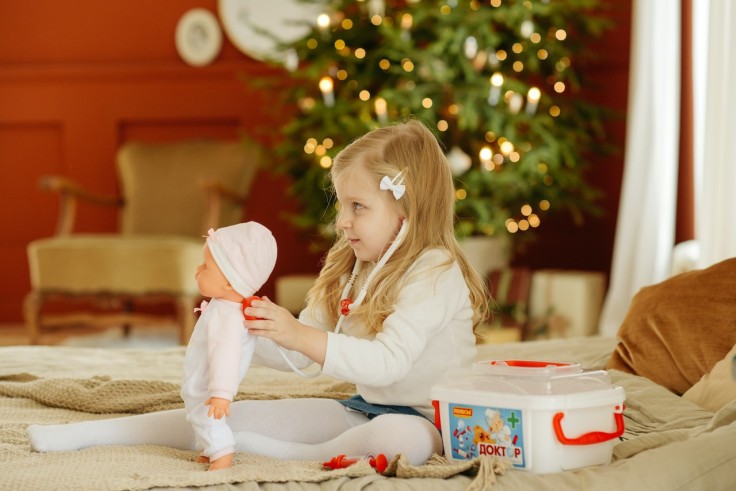
Doctors warn parents about the dangers of kids swallowing small objects from Christmas presents and crackers.
Children's doctors from the National Health Service (NHS) encouraged parents to be alert to the dangers of Christmas toys after surgeons in previous years have had to experience performing life-saving operations to remove button batteries, magnetic balls, and Christmas cracker toys, West Bridgford Wire reported.
According to the latest data, the number of children admitted to the hospital after Christmas has doubled to 228 for the past ten years after ingesting small toys or objects from toys.
Some kids have died as a result.
Can cause 'irreversible damage'
The "small button batteries," used in toys, Christmas lights, TV remotes, and even those from greeting cards, are the most that can cause damage.
"We know these batteries and other small objects are part of Christmas gifts, lights and other everyday items such as remote controls, but I would urge parents to keep their children as safe as possible by making sure loose batteries are securely out of reach and any gifts have batteries screwed in, especially if they are bought online or from less reputable sources," declared Prof. Simon Kenny, the NHS national clinical director for children and young people.
According to The Guardian, the batteries, which are "penny-sized," can burn through the throat, food pipe, or other internal body parts of children in a very short period. The NHS informs parents that this can cause "irreversible damage" to the kid.
Moreover, they can "easily go undetected" if without an electrical charge. They can get implanted and react with the child's chemicals in the body, creating alkali over time.
Disappointments on both sides
One to two children in the United Kingdom die in a year because they swallow the batteries. On the other hand, those who survive end up having life-changing injuries.
As per current data, the number of young people under 15 years old admitted to the hospital and underwent treatments after swallowing small objects increased to 228 in 2021 to 2022, from only 115 in 2011-2012.
The data is for children aged 0-14 and does not account for swallowing food, water, or other liquid such as bleach. Nor does it include kids that did not require admission to the hospital as they were already treated in the community or have already died before being admitted to the hospital, Yahoo News stated.
Prof. Kenny reminds parents that the holiday season is meant to be enjoyed as families come together. Thus, they must be cautious with their children as the last thing anyone would want to happen is to spend the holidays in the hospital with their children undergoing serious life-saving surgery.
Related Article: Button Batteries: 17-Month-old Baby Hugh Dies of Poisoning, Parents Call For Its Ban in Scotland